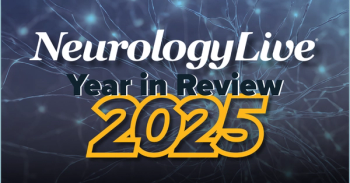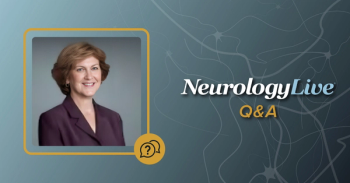
Oculis advances Privosegtor, a potential first neuroprotective therapy for optic neuritis, following FDA breakthrough designation and promising trial results.

Marco Meglio, Assistant Managing Editor for NeurologyLive, has been with the team since October 2019. Follow him on Twitter @marcomeglio1 or email him at [email protected]

Oculis advances Privosegtor, a potential first neuroprotective therapy for optic neuritis, following FDA breakthrough designation and promising trial results.

Test your neurology knowledge with NeurologyLive®'s weekly quiz series, featuring questions on a variety of clinical and historical neurology topics. This week's topic is on epilepsy comorbidities!

Angela Lek, PhD, chief research officer at the Muscular Dystrophy Association, provided an outlook on the 2026 MDA meeting and what clinicians should look forward to in preparation.

Bright Mind Biosciences reveals promising results for BMB-101 in treating drug-resistant seizures, paving the way for future clinical trials.

Mind Moments®, a podcast from NeurologyLive®, brings you an exclusive interview with Johannes Streffer, MD. [LISTEN TIME: 14 minutes]

A recent analysis reveals fenfluramine's positive effects on executive functioning in adults with Lennox-Gastaut syndrome, independent of seizure reduction.

Fenfluramine shows significant seizure reduction in CDKL5 deficiency disorder, offering hope for families facing treatment-resistant epilepsy challenges.

A pair of pediatric epileptologists highlight the systemic and patient level factors driving inequities in infantile epileptic spasms syndrome care and outline paths toward more equitable diagnosis and treatment.

An AES study revealed the real-world persistence of fenfluramine in treating Lennox-Gastaut syndrome, highlighting patient demographics and treatment trends.

A recent trial reveals semaglutide's potential for neurological improvement in stroke patients, despite no overall functional recovery benefits.

The newly approved generic product is expected to perform like other high-quality glatiramer acetate generics, with differences confined mainly to the manufacturer and device, not mechanism or dosing.

Janelle Wagner, PhD, a clinical psychologist and research professor at the Medical University of South Carolina, provided clinical insights on a recently presented study on whether elevated ADHD symptoms impact post epilepsy surgery seizure freedom.

Test your neurology knowledge with NeurologyLive®'s weekly quiz series, featuring questions on a variety of clinical and historical neurology topics. This week's topic is on preventative migraine therapies!

ALS expert Sabrina Paganoni, MD, PhD, provided follow-up commentary on promising phase 1 data from the LUMINA trial testing Amylyx’s novel agent AMX0114 in patients with early-stage ALS.

As part of NeurologyLive®'s Year in Review, take a look at some of the top ongoing clinical trials in Parkinson disease that may impact care.

Explore anticipated FDA decisions on groundbreaking neurology drugs in 2026, shaping treatment options for various neurologic conditions.

Margaret Rice, PhD, a professor in the Departments of Neurosurgery and Neuroscience at NYU Grossman School of Medicine, provided answers on recently published preclinical research relating aerobic exercise to dopamine release and coordination in PD.

Avadel's REVITALYZ trial for Lumryz in idiopathic hypersomnia shows promise, potentially offering a new treatment option for this underserved condition.

Test your neurology knowledge with NeurologyLive®'s weekly quiz series, featuring questions on a variety of clinical and historical neurology topics. This week's topic is on RBD as a prodromal marker for synucleinopathies!

Mind Moments®, a podcast from NeurologyLive®, brings you an exclusive interview with Lindsay McCullough, MD. [LISTEN TIME: 14 minutes]

The director of the Pediatric Epilepsy Center at UCSF reviewed recently presented interim phase 1/2 data for ETX101, a one-time AAV9 gene regulation therapy aiming to increase SCN1A expression in inhibitory interneurons in Dravet syndrome.

Explore the transformative buzzwords in neurology for 2025, highlighting advancements in AI, gene therapy, personalized treatment, and neuroplasticity.

Gain Therapeutics advances Parkinson's treatment with GT 2287, showcasing promising safety and tolerability in ongoing trials. Discover the latest findings.

Continuem's PIPE-307 trial for relapsing-remitting multiple sclerosis failed to meet primary goals, yet the company remains committed to exploring future therapies.

Test your neurology knowledge with NeurologyLive®'s weekly quiz series, featuring questions on a variety of clinical and historical neurology topics. This week's topic is on neuromodulation for Parkinson disease!

New findings from the LUMINA trial reveal AMX0114's safety in ALS patients, paving the way for further research and potential treatment advancements.

GLP-1 research in neurology is on the rise, with several pivotal studies lending insights into their role.

Phase 3b study revealed Itvisma's safety and efficacy in treating spinal muscular atrophy, showing modest motor function improvements in patients previously on other therapies.

Angela Lek, PhD, chief research officer of the Muscular Dystrophy Association, discusses the FDA approval of intrathecal onasemnogene abeparvovec (Itvisma; Novartis) and what it means for SMA treatment across older pediatric and adult populations.

Elizabeth Gerard, MD, an epileptologist at Northwestern Medicine, provided clinical insights on a new consortium, GEAN, which aims to expand genetic testing and define adult phenotypes for rare genetic epilepsies across North America.